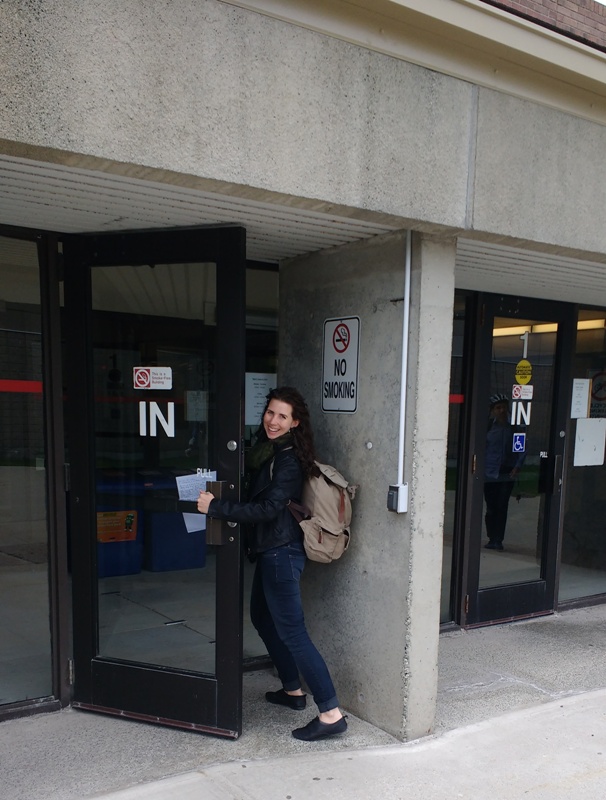This summer is extremely busy for me. I’m doing two classes, working on one Graduate Assistantship, and I’m also a TA for an undergraduate level course. This is all on top of a part-time job that I’ve taken on so that I can be prepared for the end of my fellowship funding. A lot of this year has involved being very focused on the now, but as I reach the end of my program I’m starting to plan for what’s next. I’m glad that I’ve been developing and refining my time-management skills over the course of the year, because while this workload is heavy, I find I’m better able to balance it, even in the final “crunch time” that we’re entering now. I’m also far better at asking for help than I ever was before, and I really try to find time to balance work, exercise, a healthy lifestyle, and personal time.
My program will be done after the fall semester, when I’ll be taking a 6999 course – that’s the registration number for an independent study. I’m trying to transition gradually back into working, and in preparation for that, I’m giving myself a six-month buffer before I expect to return to my previous career, teaching ESL. For the next few months my focus will be on taking everything I worked on this year and developing an academic CV and a teaching dossier with the help of Career Development and Experiential Learning.
I’ve worked hard to consider how the skills I’ve learned this year can apply to both academic and non-academic jobs. I’m a firm believer that a graduate degree in the humanities can be useful to both academic and non-academic-track careers; I think of it as opening doors that I can’t even see yet. It has also let me leave the door open on the possibility of pursuing a PhD later on. I feel that now I have a much better understanding of my field, the skills needed to succeed in it, and where I fit in the overall academic world.
I think it’s very important to prepare for the immediate end of the program in terms of practical tasks, because I’m anticipating an identity change to come sneaking in and I know from experience that it will probably take me by surprise. We change a lot over the course of our programs, but most of the time, it’s so incremental we don’t really notice it. It wasn’t even until the end of last semester that I had a moment of, “ah ha! I’m really a graduate student, and I got this.” I was leaving the Arts building with a pile of books from last semester, returning them at the end of the four-month loan period that we get them for, and I was really feeling the weight of all the ideas in them – literally and figuratively. It’s during these moments of practical activity that the ideas and theories we’ve learned settle down and take a permanent place in our worldview.
As I walked my books back to the library and thought about the key ideas that had taken root in my identity, I thought about the symbolic act of returning the knowledge in the books back for some other student to take out and go through the same process as I had. The sense of continuity in the academic world happens outside of the papers and the presentations and classes that make it up, although these are important parts of our degrees. But the moments in between where we stop and think about ourselves in relation to the whole of learning and other learners are important, too. This is something that’s always been at the foundation of my philosophy as a teacher, and I find that while I enjoyed returning to the student role again and that moment where I really felt like a graduate student was great, I miss being on the other side of that process, pointing students in the right direction of academic continuity.
The next few months will go by in a blur, I know. It’s only July, but I’m thinking about the end of the term already, with only four weeks left to go. Then vacation in August, then the last term.
September is always my favorite time of the year, as it signifies new academic opportunities and beginnings, but I’m anticipating a bit of creeping nostalgia as my year as a graduate student draws to a close and I find myself on campus less and less. The next time I take out library books for a four-month loan puts a definite timeline on the end of my program and signifies the next step of my life as I go back to teaching. I’m measuring the time I have left in my program in pages of papers, chapters of books, and library loan periods.
